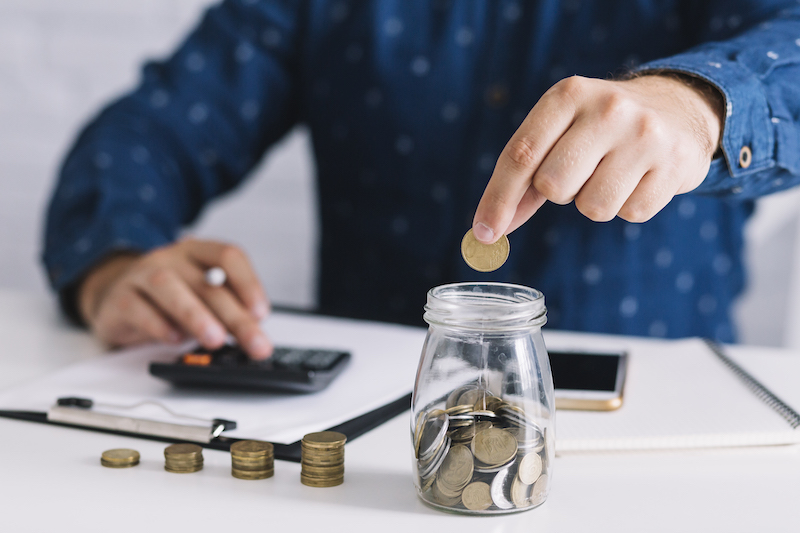Sticking to a monthly budget is a sure way of getting your finances back on track. But, unfortunately, it’s something a lot of us are not disciplined enough to follow! Even here at Fincheck, we sometimes have to give ourselves a little kick to stick to our personal finance goals!
To help you (and ourselves) out, we’ve put together a super simple budgeting tool. You can get it here and it is the perfect buddy tool along with our cash flow projection tool.
The rule of thumb is, use the cash flow projection tool to see how well you keep with your budget! If your pattern remains the same after a few months, consider changing your budget to match your cash flow.
It’s always better to try and change your habits by being realistic about where you are. Don’t make your budget look like the gold standard of budgeting but your cash flow tells a completely different story! Rather update your budget and choose one area to improve for the next month or two.
How to use the budget spreadsheet?
1. First of all…
Follow the general instructions very clearly! This is very important as it will ensure you have a great experience that is accurate. Make sure you copy or download the file to your own device. Requesting access is not the answer 🙂
Allocate your income
Add your total monthly income to the allocated block. The text is white, so it should be easy to find.
Adjust your expenses
Follow the instructions on how to do this correctly.
Start with your “Fixed expenses” first as there is no escaping them. If you’re unsure which expenses these are, they are the expenses you can NEVER ESCAPE. No matter where you go, they always happen. Think of things like food, loan repayments, house payments, vehicle payments. Food is probably debatable, but we suggest you add it to your fixed expenses 😉
Next up is “Variable expenses”. Typically these happen every month due to a combination of your lifestyle and some bad financial habits. Good variable expenses can include savings, healthy hobbies, gifts and education. Bad variable expenses include over-spending on entertainment, eating out and all those coffees!
Don’t fool yourself by not adding bad variable expenses. Rather plan for them, and reduce them over time.
2. What’s next?
Healthy cash flow is next! Cash flow will make or break your financial health. Work through the tips below to get a healthy understanding of how you can approach your budget!
No available cash = financial opportunities come to a standstill
When you have no available cash flow, these are some of the common problems that most people experience:
- Cannot pay financial responsibilities like car payments, house payments, debit orders or credit card payments
- Cannot maintain household or family expenses like basic food needs
- Cannot go out with friends or do related recreational experiences
- Cannot enjoy financial opportunities that come your way
So, how can you use the above information to create a better financial future for yourself? We’ve compiled some of the simplest steps to improve your cash flow below!
1. Stop spending more than you earn
This step alone will take your personal finances from rubbish status to healthy status! This is the most important step to reverse the debt cycle over one’s life. Use the Fincheck MyFinance Tool to compare the amount of money that has come in versus the money that is going out.
2. Revisit your expenses, cut some out, make others cheaper
Are you spending money in areas where you can start saving it towards a positive cash flow? Think of spending patterns in your life like fashion shopping, coffee shops, takeaways, and recreational experiences. Then, take a look at the amount you spend on things. Are there cheaper alternatives that you can start using?
This includes items like:
- Cars
- Insurance
- Cheque Cards
- Groceries
3. Allocate money to an emergency fund and savings
A key strategic move towards a healthy cash flow situation is to put money towards an emergency fund before you spend any money at all. Follow that up with a little extra portion per month towards a savings account. This can be the same account, but the idea is to fill it up like a bucket under a leaking roof (or running tap if you’re disciplined enough!).
4. Allocate money to your responsibilities first
Many South Africans spend the money that should have gone towards things like house payments, debt and other living costs on other things. These expenses are often impulsive (like the latest sale) or spontaneous (drinks with friends). This leads to increasing credit card limits to cover the responsibilities that come after this. Or, taking out personal loans to cover the increasing debt. As with an emergency fund, put the money somewhere you cannot spend it until the debit order goes off! And when you’re left with little else to spend on lifestyle expenses? Well, that’s where the following comes into play!
5. Make some extra money
Make more money by leveraging the skills you have towards some extra money. Who knows what will come out of it – maybe your first-ever business? Or, work hard towards that next promotion that is within your reach!
6. Set some goals to keep doing the above
A clear vision and goal will help you to work towards a healthy cash flow situation. It will keep you motivated to apply the above steps! Think about the things that bring you personal fulfilment and make them part of why you’re tackling your cash flow.






